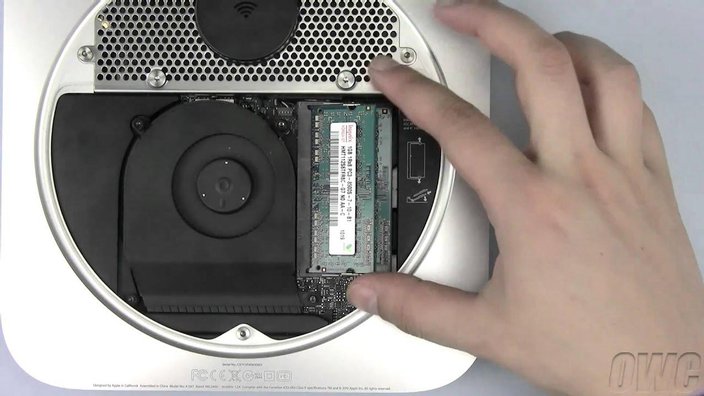
- FAIR PRICE FOR 2010 MAC BOOK PRO 16GB MEMORY CARD HOW TO
- FAIR PRICE FOR 2010 MAC BOOK PRO 16GB MEMORY CARD FOR MAC
- FAIR PRICE FOR 2010 MAC BOOK PRO 16GB MEMORY CARD MAC OS
- FAIR PRICE FOR 2010 MAC BOOK PRO 16GB MEMORY CARD DRIVERS
- FAIR PRICE FOR 2010 MAC BOOK PRO 16GB MEMORY CARD PATCH
This will download the latest copy of the installer directly from Apple’s server.
FAIR PRICE FOR 2010 MAC BOOK PRO 16GB MEMORY CARD MAC OS
Make sure it is formatted as Mac OS Extended (Journaled). Format your flash drive or external drive using Disk Utility.Note that the screenshots below actually show Mojave Patcher (from an upgrade to macOS Mojave, last year), but the process remains essentially the same. You can also follow along with the step-by-step outline below. Here’s the official video guide by the creator of Catalina Patcher:
FAIR PRICE FOR 2010 MAC BOOK PRO 16GB MEMORY CARD HOW TO
And now for the step-by-step guide on installing macOS 10.15 Catalina on your unsupported Mac! How to install macOS Catalina on an unsupported Mac This will make your machine run a lot smoother regardless of which OS you decide to install. Of course it is recommended you upgrade your Mac to the maximum amount of RAM and replace your hard drive with a solid state drive (SSD).
FAIR PRICE FOR 2010 MAC BOOK PRO 16GB MEMORY CARD PATCH
I have installed this patch on even older systems such as the Late 2008 Aluminum Unibody MacBook, and it ran Mojave very well. According to the System Report, my MacBook Pro is a MacBookPro5,2. This system is several years older than the minimum Apple says is supported.

You can find all the steps on the macOS Catalina Patcher website, but I’ll be taking the journey with you using my Mid-2009, 17″ MacBook Pro. In the hardware overview window that pops up, a Model Identifier will be listed make sure you write it down or remember what this is.
FAIR PRICE FOR 2010 MAC BOOK PRO 16GB MEMORY CARD DRIVERS
It uses a similar methodology to so-called “hackintosh” computers, where additional Apple drivers from previous versions of the operating system are included to make the current version of macOS work with a wider range of hardware. The unofficial list looks a lot better, doesn’t it? Perhaps it seems too good to be true, and to be fair, there are some known issues with certain models (see below, and the Catalina Patcher homepage, for details). Josh Long (the JoshMeister) October 8, 2019 But many ≥2008 Macs can be upgraded to #macOSCatalina without hardware changes!) /PWnINBJRm6 (*This iMac required a CPU upgrade the chipset misidentifies 2.6 GHz as 700 MHz 🤣. I’ve successfully installed macOS Catalina on a 2007 iMac.* *With a processor upgrade (not for the faint of heart), the unofficial list can even include the mid-2007 iMac, a computer that is now more than a dozen years old. Mac Pro (Early 2008 or newer with recommended graphics cards) IMac (Early 2008 or newer, except for some 2010 models and all 2011 models) IMac (Mid 2007, after upgrading the CPU)* The unofficial list, however, looks more like this: Sounds interesting, doesn’t it?Īccording to Apple, these are the supported models for macOS 10.15 Catalina:

Use a third-party utility to install the latest macOS on your Mac, even if Apple doesn’t officially support it.Keep in mind that even though these two older macOS versions still receive security updates, not all known vulnerabilities are addressed. At the time of writing, the current version of macOS is Catalina (10.15.x), and the two previous versions are Mojave (10.14.6) and macOS High Sierra (10.13.6). If you can’t upgrade to the latest version of macOS, install the latest compatible version that still receives security updates.What if I told you there are ways to keep your old Mac running a safe version of macOS for longer? There are two options: If you want to upgrade to a newer version of macOS but Apple no longer supports your Mac, the best option is of course to buy a new Mac, but not everyone can afford to do so.
FAIR PRICE FOR 2010 MAC BOOK PRO 16GB MEMORY CARD FOR MAC
However, if your Mac is several years old, there’s a good chance that the current version of macOS won’t run on your Mac Apple drops support for Mac models that it declares to be vintage or obsolete. Note: This article was originally written for macOS Mojave, and has been adapted for macOS Catalina.įrom a security standpoint, using the latest version of macOS-the Mac operating system-is always preferred. Software & Apps How to keep older Macs secure: a geeky approach (run Catalina on unsupported Macs)


 0 kommentar(er)
0 kommentar(er)
